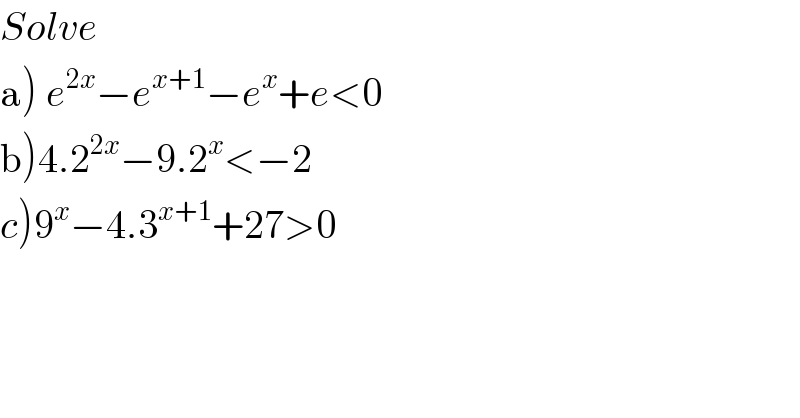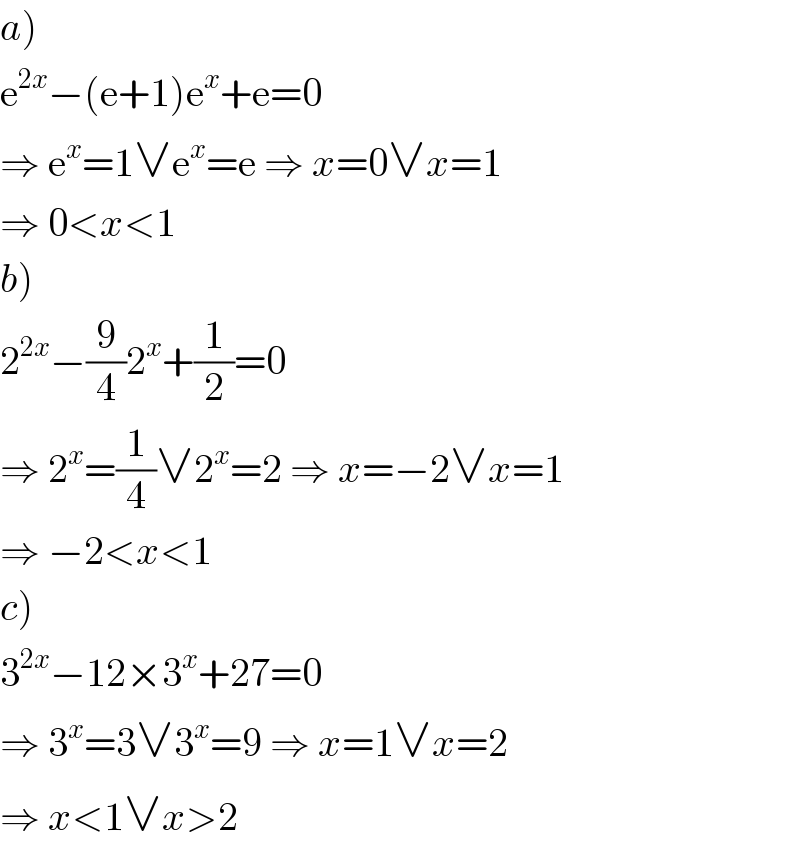
Question and Answers Forum
Question Number 70066 by Maclaurin Stickker last updated on 30/Sep/19

Answered by Rio Michael last updated on 30/Sep/19
![b) 4(2^x )^2 −9(2^x ) + 2 < 0 4(2^x )^2 −8(2^x ) −(2^x ) + 2 <0 4(2^x )(2^x −2) −1(2^x −2)<0 (2^x −2)[4(2^x )−1] <0 the zeros are 2^x = 2 or 2^x = (1/4) ⇒ x = 1 or x = −2 2^x <(1/4) (1/4)<2^x < 2 2^x >2 ++++ −−−−− ++++ solution set S = {2^x : (1/4)<2^x <2} or S = {x: −2 < x < 1}](Q70083.png)
Commented byMaclaurin Stickker last updated on 01/Oct/19

Commented byRio Michael last updated on 02/Oct/19

Answered by MJS last updated on 30/Sep/19

Commented byMr. K last updated on 01/Oct/19

Commented byMaclaurin Stickker last updated on 01/Oct/19

